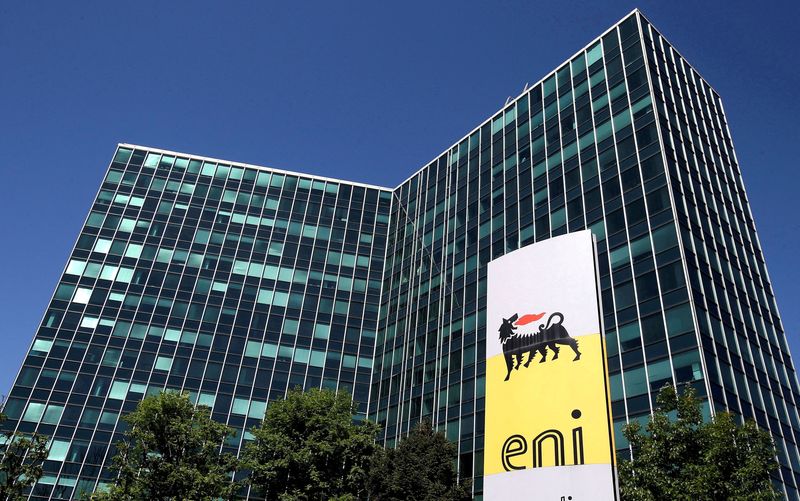By Francesca Landini
MILAN (Reuters) - Italy's Eni is investing in farming in several African and Asian countries as it aims to produce by itself around one fifth of the agricultural feedstock it will need for its biofuel business by 2025, two top executives at the energy group said.
Energy companies are betting on increasing demand for fuels made from vegetable oil, waste cooking oil and grease, which they say will play a key role in decarbonising the truck, aviation and shipping sectors in coming years.
To satisfy this expected demand, Eni is ramping up its bio-refining capacity and, at the same time, is expanding farming ventures to secure supplies and reduce the risk of excessive volatility in the commodity market.
"Our goal is to cover 20% of (our) biofuel production with feedstock coming from our agri-business by 2025, which is a relevant threshold since we have increased our output targets," Eni Energy Evolution Chief Operating Officer Giuseppe Ricci told Reuters in an interview.
In February Eni said it targeted bio-refining capacity of more than 3 million tonnes per annum by 2025 and over 5 million tonnes by 2030, from the current 1.1 million.
This compares with forecasts by analysts at Barclays (LON:BARC) of global biofuel demand tripling to 30 million tonnes by the end of the decade.
Eni has signed deals with several countries to identify degraded land where farmers cultivate crops that do not compete with the food supply chain.
"We have pools of local farmers who cultivate for us ... we get seeds, squeeze them and take the oil to our bio-refineries," said Guido Brusco, Eni Natural Resources chief operating officer. The oil also derives from agro-industrial waste and residues.
Around 700,000 farmers are expected to be involved in Eni's farming activities by 2026, under deals signed with Angola, Benin, Republic of Congo, Guinea Bissau, Kenya, Ivory Coast, Mozambique, Rwanda and Vietnam. Feasibility studies are under way in Italy and Kazakhstan.
The business model is similar to the one Eni applies in its hydrocarbon business.
"We are replicating the vertical integration we have in other commodities and the logic is to reduce volatility, secure the raw material, and have more control over costs," Brusco said.
Also following the vertical integration model, BP (LON:BP) is considering buying stakes in biofuel feedstock producers and investing directly in farming ventures, BP head of biofuels Nigel Dunn told Reuters.
Eni says biofuels can cut net greenhouse gas emissions by between 65% to 90% compared with fossil fuels, depending on the type of raw material and the production process.

"By the end of this year we will take the final investment decision over a new bio-refinery in Livorno (Italy)," Ricci said. This will add to two existing Italian bio-refineries and two potential new plants in the United States and in Malaysia.
Even if biofuels have higher costs, the fact that they can be produced with existing infrastructure make them a competitive solution to decarbonise transport, Ricci said.